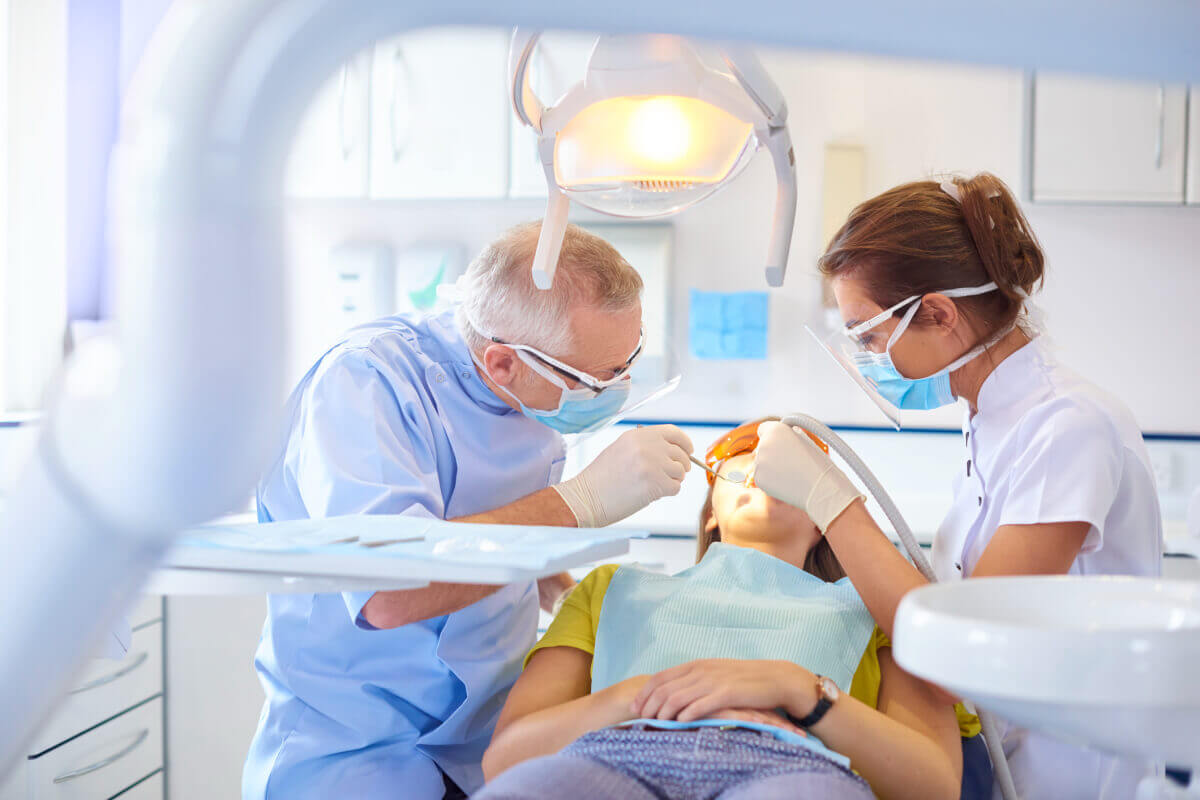Technology is constantly developing, bringing unique and creative approaches to health care. Dental therapy benefits from specialized advances as well. Laser dentistry is a prime example. Since the 1960s, dental researchers have been exploring the possible applications of laser therapy to treat tooth decay and other oral health issues.
We will look at the various pros of opting for laser therapy near you and what it means for your teeth and oral health.
Laser Dentistry: What is it All About?
Lasers are light beams that are super focused. They can be utilized for a range of dental operations performed by a dentist near you, including removing excess tissue, cosmetically contouring the gums, whitening teeth, and curing plaque buildup and cold sores. Since the concentrated light is less invasive, many operations have become more comfortable. The heat generated accelerates the healing process by minimizing bleeding and the danger of infection.
Lasers use light to transmit energy, allowing dentists in Grande Prairie to accurately ‘cut’ tissue. The laser can also be used for teeth whitening operations, acting as a heat source to activate the whitening gel.
Introducing Safer Laser Dentistry
Dentists finally discovered a safe and successful approach to employing lasers for patient treatments in the 1990s. Even though it took decades, they could produce adequate wavelengths capable of providing patients with soft tissue and enamel treatments without risk of injury.
Even though lasers were employed for limited specialist oral treatments in the 1980s, they were yet to become a widespread therapy at your local dental practice. However, after they identified the optimum wavelengths, the tools could be made and supplied to all dental offices.
Laser Dentistry Treatment Options
Laser therapy in Grande Prairie can now be utilized to quickly and gently modify or remove tissue. It is perfect if you are afraid of dental treatments because it eliminates the need for sutures and may often be done without an anesthetic.
As previously stated, one of the most significant advantages of laser dentistry is the sterilizing action of the lasers. This lessens the danger of infection, cuts down
on bleeding, and accelerates the healing process. Laser dentistry can be used for many different procedures, including:
Gingivoplasty and Gingivectomy: Gingivoplasties and Gingivectomies are periodontal diseases and other gum-related dental surgery procedures. Periodontal disease is defined as an infection of the gums, tissue, and bone that support your teeth.
Scaling and root planing have traditionally been utilized as therapies. More severe instances, on the other hand, necessitate surgery. This procedure can also be used for cosmetic objectives, such as improving gummy smiles or inconsistent gum contouring. The therapy is less painful when lasers are used instead of scalpels, and the healing process is speedier.
Laser Whitening: Laser whitening treatments are also available. The employment of lasers expedites the procedure. Patients frequently achieve the desired effects in as few as one or two treatments.
Tongue Tie And Laser Frenectomy: Tongue ties can make it difficult for a newborn baby to breastfeed. Both the infant (who is frustrated and at risk of not prospering) and the mother suffer as a result of this. A frenectomy removes the tongue’s troublesome ‘frenulum,’ thereby resolving the tongue knot. The laser is faster and safer than traditional cutting methods, and it keeps your infant comfy both during and after an operation.
The Pros of Laser Dentistry
There are substantial benefits to using laser dentistry, including:
- Procedures are more efficient.
- It alleviates soreness.
- Improved healing time
- Infection risk is reduced.
- In many circumstances, sutures are unnecessary.
- Anesthesia is not always required.
- Lasers sanitize the gums automatically.
- Soft tissue injury is reduced.
- There is less bleeding.
Laser dentistry advancements have made this extremely successful therapy more accessible and affordable in places like Northern Dental Centre. As such, more dentists can now provide laser treatments to their patients.

